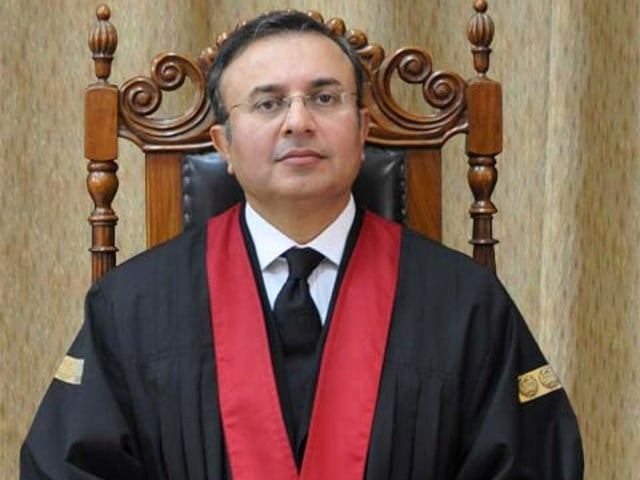Justice Shah warns of judiciary's 'weakest moment'
Writes letter to chairman of JCP's rules-making panel; says executive overreach could undermine rule of law

Senior puisne judge Justice Syed Mansoor Ali Shah has sounded the alarm over what he describes as one of the weakest phases in the judiciary's history, warning of heightened risks of executive overreach.
In a five-page letter addressed to Justice Jamal Khan Mandokhail, chairman of the Judicial Commission of Pakistan (JCP) rules-making committee, Justice Shah raised serious concerns over the absence of formalised rules for the appointment of judges to constitutional courts.
In the letter, dated 12 December, Justice Shah further said that the judiciary has enjoyed primacy in the appointment process of the judges in Pakistan. However, the vital balance has been fundamentally disturbed under the 26th Constitutional Amendment, which now grants a majority to the executive in the Judicial Commission of Pakistan (JCP).
He further warned that the unprecedented shift in the composition of the JCP poses grave risks, including the potential for political appointments and the packing of courts with judges lacking all ideological commitment to the rule of law.
He cautioned that the deficiency threatened the independence of the judiciary, the rule of law and the democratic fabric of the country.
"It may be noted that Clause (4) of Article 175A of the Constitution expressly mandates the commission to make its rules of procedure 'including the procedure and criteria assessment, evaluation and fitness for appointment of judges,'" Justice Shah wrote in his letter.
In the absence of such rules, he warned, any proceedings undertaken by the commission for the appointment of the judges would be unconstitutional.
"The absence of robust rules and criteria will allow outside influence to undermine the judiciary by facilitating appointments that serve partisan interests rather than upholding constitutional values," he warned.
Therefore, he stressed, it was critical that no appointment to the constitutional courts proceeds until these rules are finalised and adopted by the JCP. He argued that this approach was essential not only for ensuring the independence of the judiciary but also for enhancing public trust in the courts as bastions of justice, the rule of law, and democratic accountability.
Any hurriedness in the matter by the JCP can seriously undermine and weaken the judiciary for years to come, he warned.
The letter comes in the wake of Chief Justice of Pakistan Yahya Afridi's decision to form a five-member committee to draft rules for regulating the procedure and criteria for judicial appointments.
Last week, Chief Justice Afridi presided over JCP meetings addressing three key issues: the formation of the committee to draft rules, the nomination of Justice Shahid Bilal Hassan as the eighth judge of the Supreme Court constitutional bench and the appointment of additional judges to the Sindh and Peshawar high courts.
The committee, chaired by Justice Jamal Khan Mandokhail, comprises Attorney-General of Pakistan Mansoor Usman Awan, Senators Ali Zafar and Farooq H. Naek, and lawyer Akhtar Hussain. According to a Supreme Court statement, the committee has been tasked with drafting the rules and submitting them to the JCP secretariat by December 15.
Justice, in his letter to Justice Jamal Mandokhail, further stressed the importance of fairness and preventing executive overreach, stating, "I trust that you will recognise the urgency and importance of this matter and act decisively to ensure that the process is both fair and resistant to outside influence".
He expressed anticipation for the draft rules to be discussed at the next JCP meeting scheduled for 21 December 2024, noting, "I understand that unless the rules are finalised by the JCP we cannot initiate the process of appointment of judges".
"Any appointments made without a well-defined and transparent framework of rules will undermine public confidence in the judiciary. compromise its independence, and erode its ability to function as a neutral arbiter of justice," he stressed.



















COMMENTS
Comments are moderated and generally will be posted if they are on-topic and not abusive.
For more information, please see our Comments FAQ